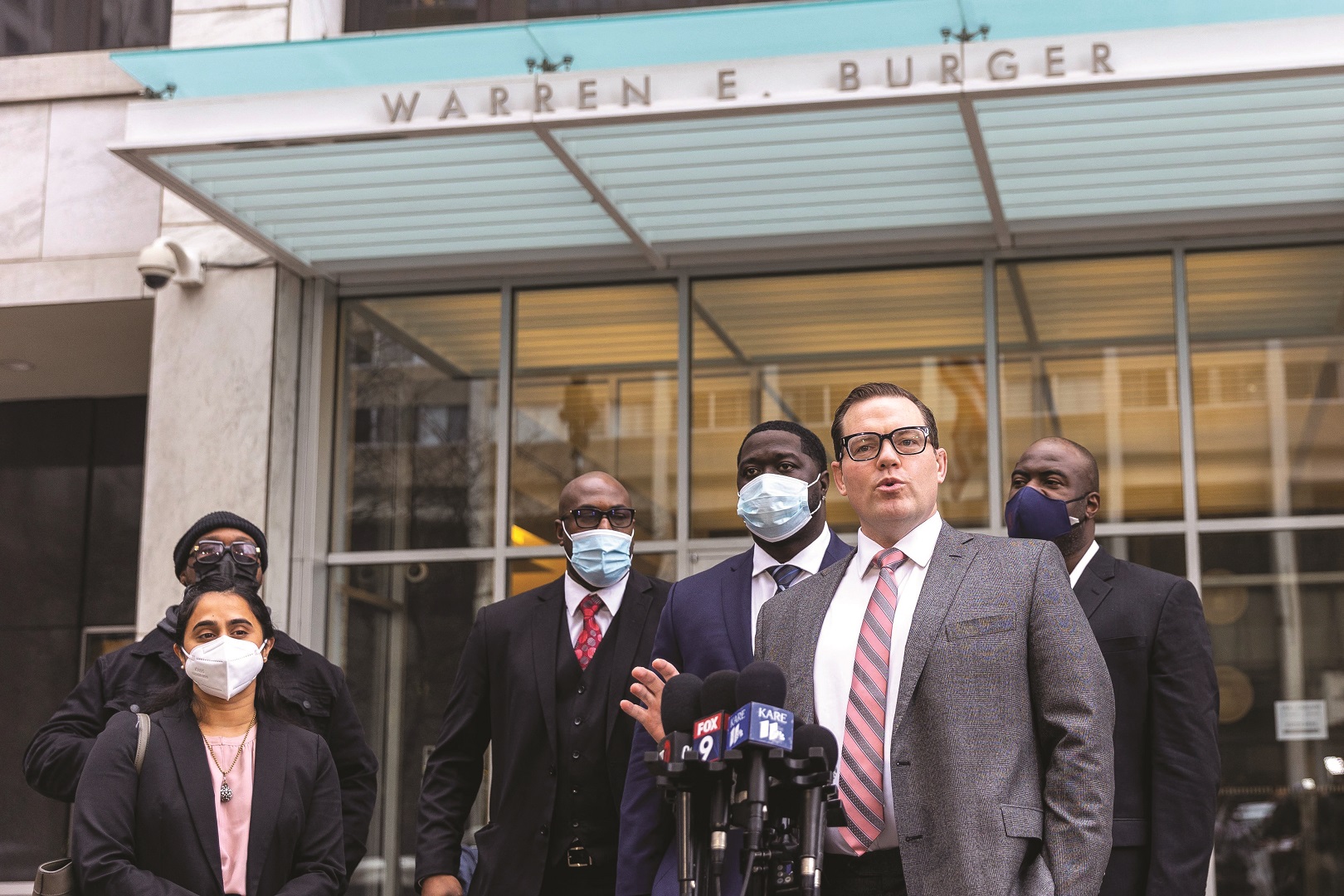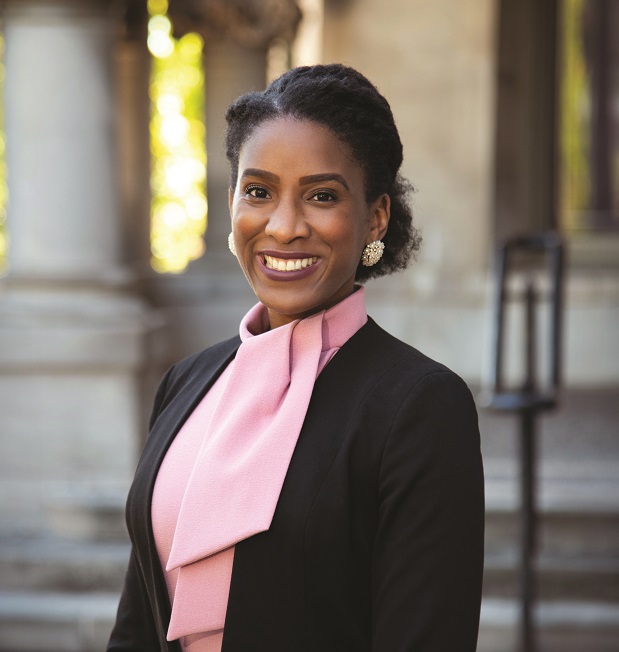Law alumnus Jeff Storms' fight for civil rights
It’s a Monday evening in April in Brooklyn Center, Minnesota. A balloon release and candlelight vigil signal the one-year “angelversary” for Daunte Wright, the young man fatally shot by officer Kim Potter, who stated she intended to pull her Taser but instead had pulled her gun.
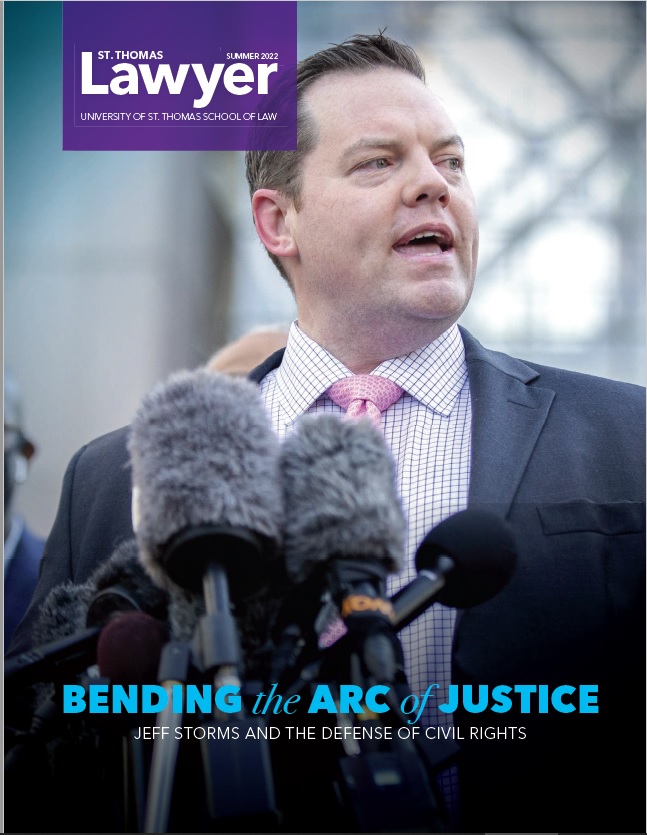
Civil rights attorney Jeff Storms ’06 J.D. is here, beside the Wright family. While his presence is not required as part of his role pursuing a wrongful death lawsuit against the north suburban Minneapolis city, he says that to be a successful civil rights lawyer “it is a complete life commitment.”
Storms built his practice representing the families of those killed or injured due to unconstitutional conduct or negligence by government officials from police officers to child protection case workers. It’s emotional for him and for the families. He takes solace in knowing that his work allows for justice, accountability and healing, while also impacting the administration of justice in ongoing efforts to obtain the equitable application of legal right and law.
Two years ago, a month before Wright died, Storms and his co-counsels, Ben Crump and Antonio Romanucci, negotiated an unprecedented $27 million pretrial settlement with the city of Minneapolis on behalf of George Floyd’s next of kin.
Storms’ advocacy goes beyond a monetary outcome; it is after change – change in the way the civil justice system both sees and responds to systemic racism. This change can be made whether a civil rights case settles pretrial or has the facts roll out to a jury.
Civil rights Section 1983 litigation is nuanced. Legal concepts such as qualified immunity, deliberate indifference and Monell doctrine require a level of understanding and advocacy that can tip cases in favor of the plaintiff under the most exacting review and evaluation of a judge. For a complicated civil rights case to make it to trial, civil rights lawyers must navigate a maze of procedural challenges because there are multiple opportunities for the district court and appellate courts to dismiss the claim for failure to meet a legal standard or the requirements of the law.
As a nationally recognized civil rights lawyer, Crump stated, “In Minnesota, we just haven’t found anyone who understands 1983 litigation better than Jeff Storms.” He noted that such cases don’t always advance. “Probably 90% of the cases with death by excessive use of force are dismissed on qualified immunity – that means families don’t get any justice in criminal courts nor in the civil courts.” This is why Crump, Storms and other civil rights advocates argue strenuously for the abolition of qualified immunity, a doctrine that Storms says unjustly prevents holding government actors accountable for violations of constitutional rights.
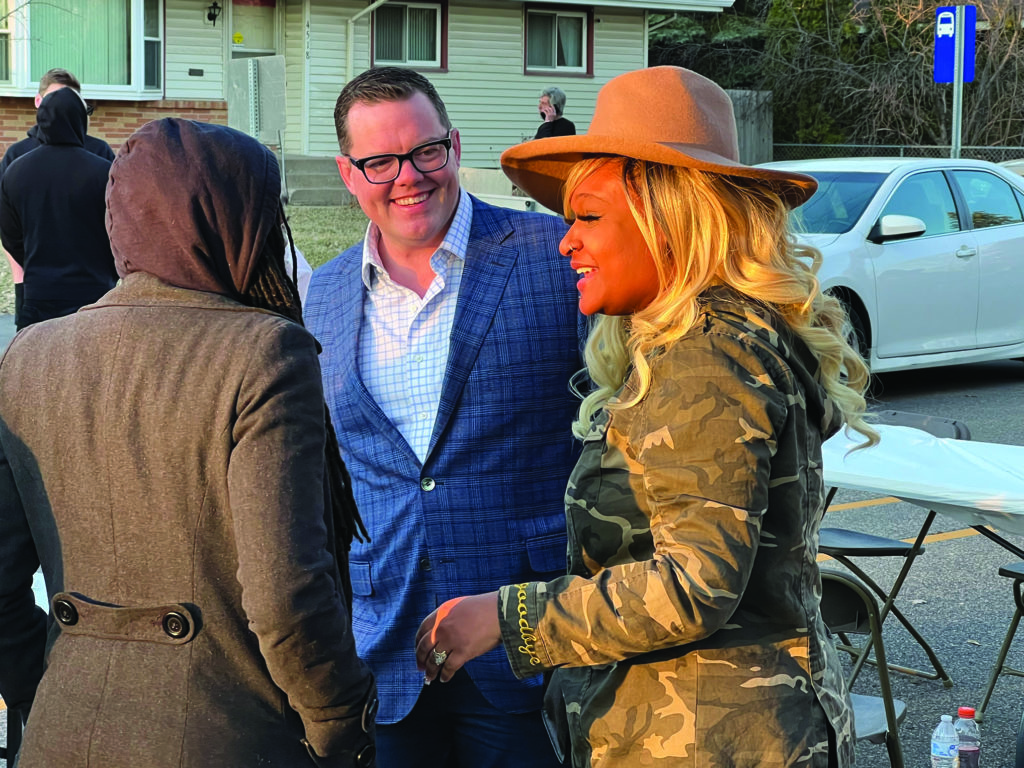
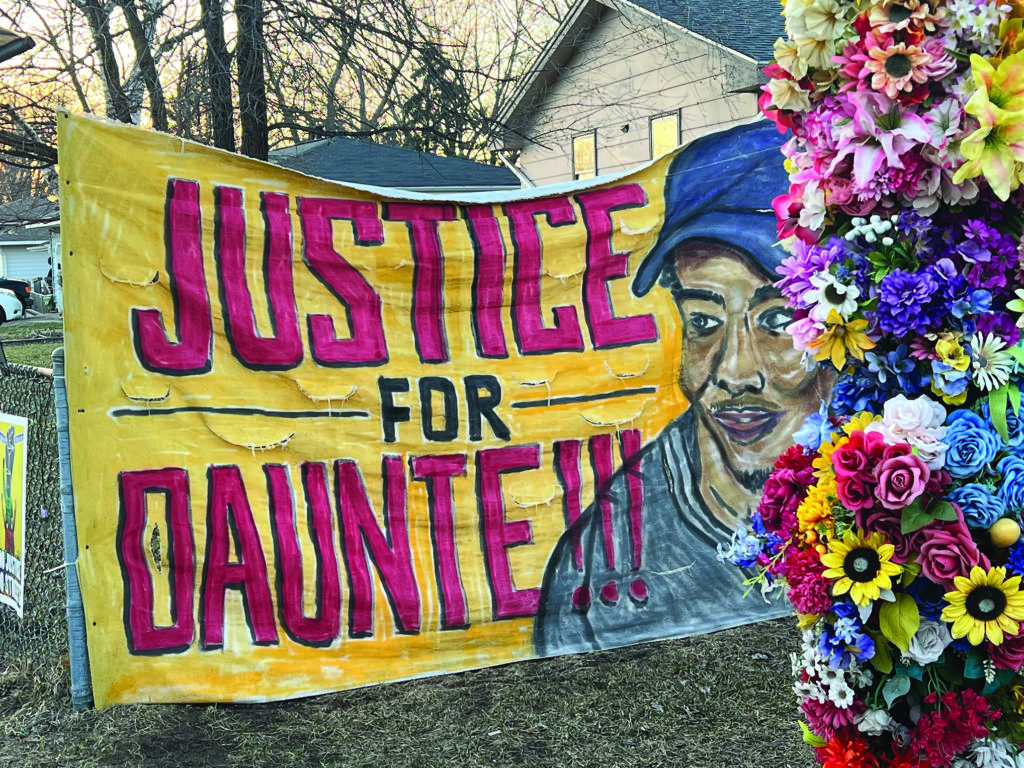
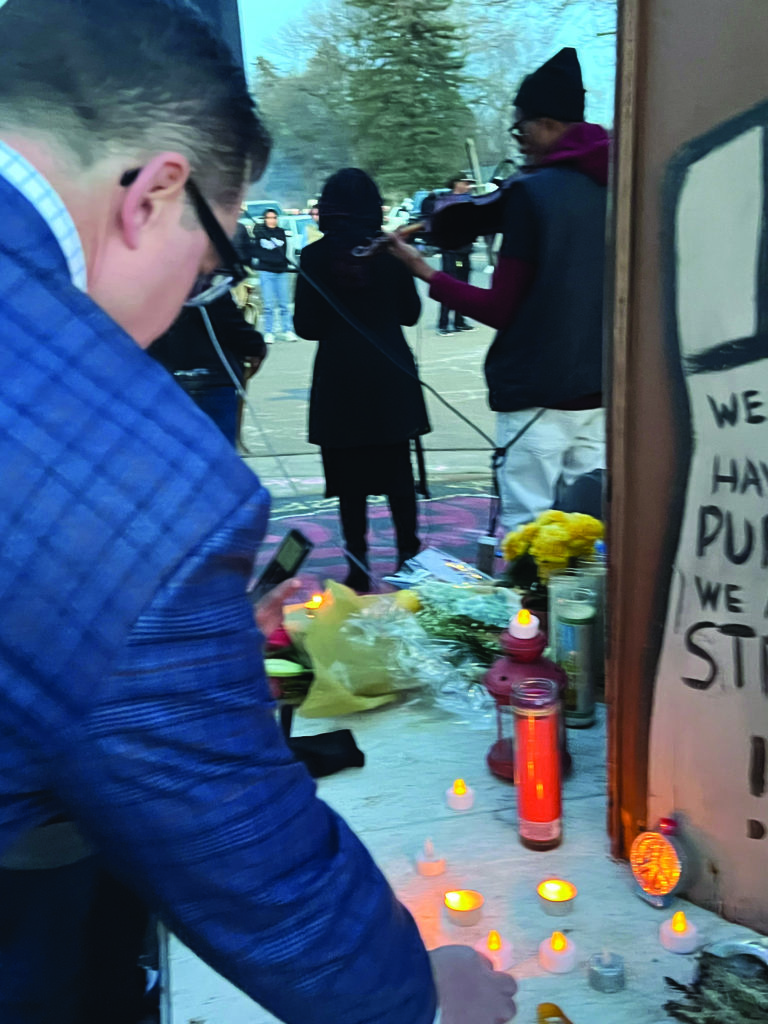
Defining the contours of constitutional rights
In 2013, Storms’ work on a $3.075 million recovery for the next of kin of David Cornelius Smith was then the largest police brutality wrongful death settlement in Minnesota history. In 2018, Storms and his co-counsel secured a $1.5 million settlement with Hennepin County over the wrongful death of Kendrea Johnson, a six-year-old who died by ligature hanging while in foster care. Also in 2018, Storms accomplished the rare feat of winning at the 8th U.S. Circuit Court of Appeals on back-to-back days in two other civil rights cases, one of these cases being a reversal of the underlying district court opinion.
Storms argued and won a second reversal at the 8th Circuit in 2021 on a matter he cannot comment on. Reversals on civil rights cases at the 8th Circuit are very rare, and Storms has now done it twice in the past four years alone.
Storms is being recognized for his work. He has been named a Minnesota Attorney of the Year four times and is the recipient of an AAJ Leonard Weinglass in Defense of Civil Liberties Award.
He has also been named one of Minnesota’s Top 100 Super Lawyers for 2022. He knows, however, that his victories are really victories for defining the contours of the constitutional rights protecting those who are often marginalized in our system of justice. Historically, the administration of justice has focused primarily on monetary damages for the aggrieved party, such as in 1991 when Rodney King was brutally beaten by police. Now Storms and his co-counsel regularly advocate for nonmonetary relief and community justice. In the Floyd settlement, the family pledged $500,000 from the settlement funds to be returned to the community with a focus on investing in the business district surrounding 38th Street and Chicago Avenue, where George Floyd was murdered.
Still, Storms believes too many entities remain resistant to agreeing to nonmonetary terms out of a misguided and shortsighted fear that places an emphasis on protection in future litigation rather than making meaningful change that protects future victims. Even when such agreements are reached, Storms has concerns about entities truly implementing the changes they agree to make. The Smith case is a tragic example of that.
Smith died by homicide in 2010 while restrained in a prone position on a YMCA basketball court by two Minneapolis police officers. Aside from the monetary payout, the settlement included an agreement that the city’s police officers would receive additional safety training discussing the deadly risks associated with positional asphyxia. Yet, Floyd was murdered only 10 years later through the use of a similar prone restraint.
“David’s death was supposed to prevent George’s death from happening,” Storms said. “It obviously did not. The city failed – in historic proportions – to meaningfully fulfill its promise to the Smith family.”
Storms and his partners at Newmark Storms Dworak, the firm he has helped build since 2015, have an increasing presence in high-profile civil rights cases. His firm also focuses on protecting the rights of individuals through its criminal defense and personal injury practices.
Highly sought after, Storms partnered again with Crump and Romanucci on a third police misconduct case, this one involving Amir Locke, a Black man fatally shot in February 2022 by Minneapolis police entering a residence with a no-knock search warrant.
Since neither Crump nor Romanucci are barred in the state of Minnesota, “We needed someone who is a top-notch, first-class civil rights attorney in Minnesota,” said Crump. “The person everyone kept talking about is attorney Jeff Storms. He is one of the best discoveries I made across America.”
Genuine relationships and trust
Storms refers to himself as an East Coast “blue-collar kid.” The son of a New Jersey police officer, Storms was a prep national wrestling champion in high school.
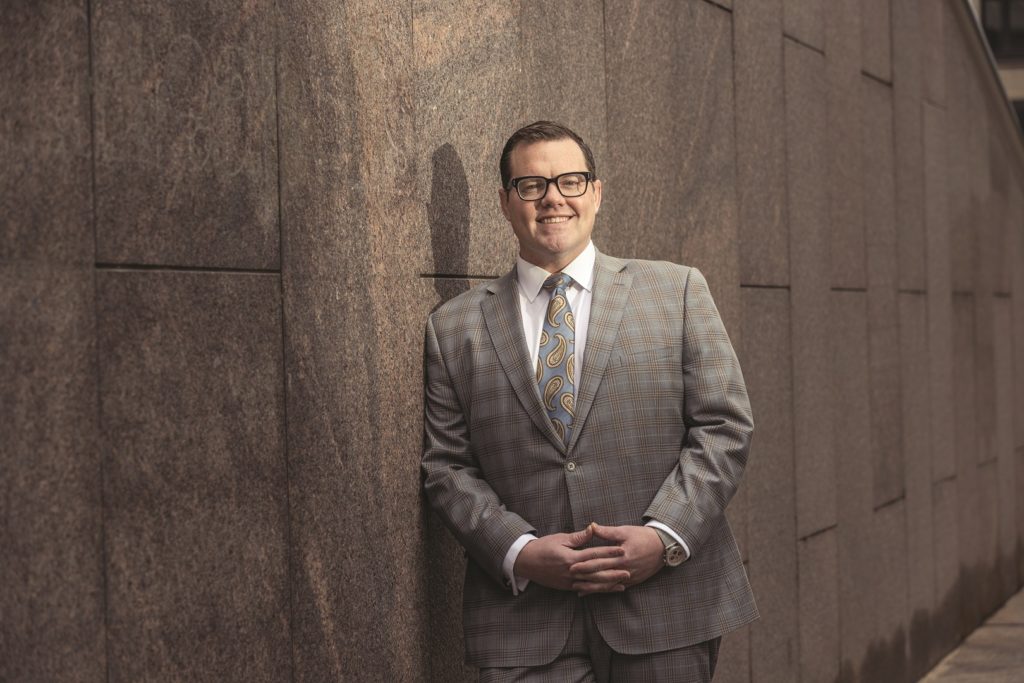
He landed on the Division I team at Davidson College in North Carolina. His wrestling career ended abruptly due to a serious neck injury.
The injury, he said, “knocked me down several pegs in terms of my ego. It made me reevaluate who I was as a person. Instead of the successful ascent I had been experiencing, it gave me some adversity to overcome. It changed how I related to people and how I value people.”
Although he said he always knew as a kid that he’d probably become a lawyer (“I was argumentative,” he said), he believes he is a better, more concerned, more collaborative lawyer because of his sports injury.
“I realize that I can’t do these things alone. I need people to help me with cases and refer me cases and support me and I love helping other people succeed.”
University of St. Thomas Law alumna Kaarin Nelson Schaffer ’06 J.D. attests to Storms’ congenial and supportive nature. “He is really patient and makes time for people,” she said.
Schaffer was the trustee for George Floyd’s next of kin in the case against the city of Minneapolis. The family selected her from among other attorneys after a recommendation from Storms.
“When I had a concern, he would help me figure it out. I saw him do the same thing for the families,” Nelson Schaffer said. “These families don’t know what a 1983 case is. Jeff always took the time to explain the law in a way that made sense. He is an excellent lawyer.”
Storms says he is intentional about taking time with his clients because their matter is not just another case. He believes being a good lawyer requires building genuine relationships and trust, a belief that was fostered during his time in law school at St. Thomas.
“Our professors and mentors stressed the human side of the law,” Storms said. “Not only was there a focus on understanding and pursuing a client’s individual needs and interests, but we were challenged to be mindful of how our chosen pursuits fit within the broader context of social justice.”
Storms added that one thing life experience has taught him is that “as I go through the current success related to my practice, all that success can go away quickly if you don’t handle your practice the right way or if your ego becomes overinflated.”
As the sun began to set behind the memorial statue erected at the Daunte Wright intersection, more than three hours after the start of the event, Storms was still there, mingling and supporting the family. Indeed, he has made his vocation a life commitment.
This story is featured in the summer 2022 issue of St. Thomas Lawyer.
